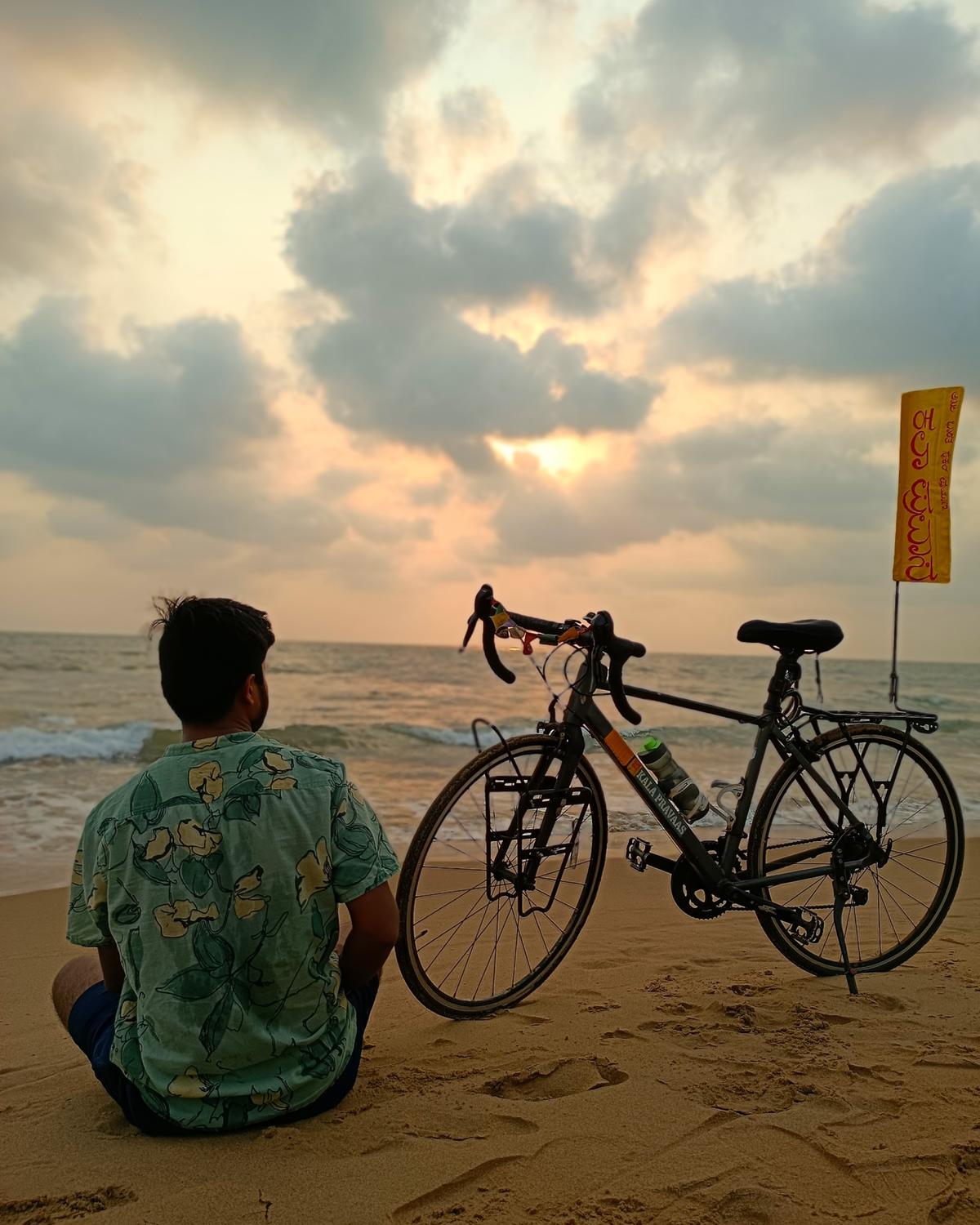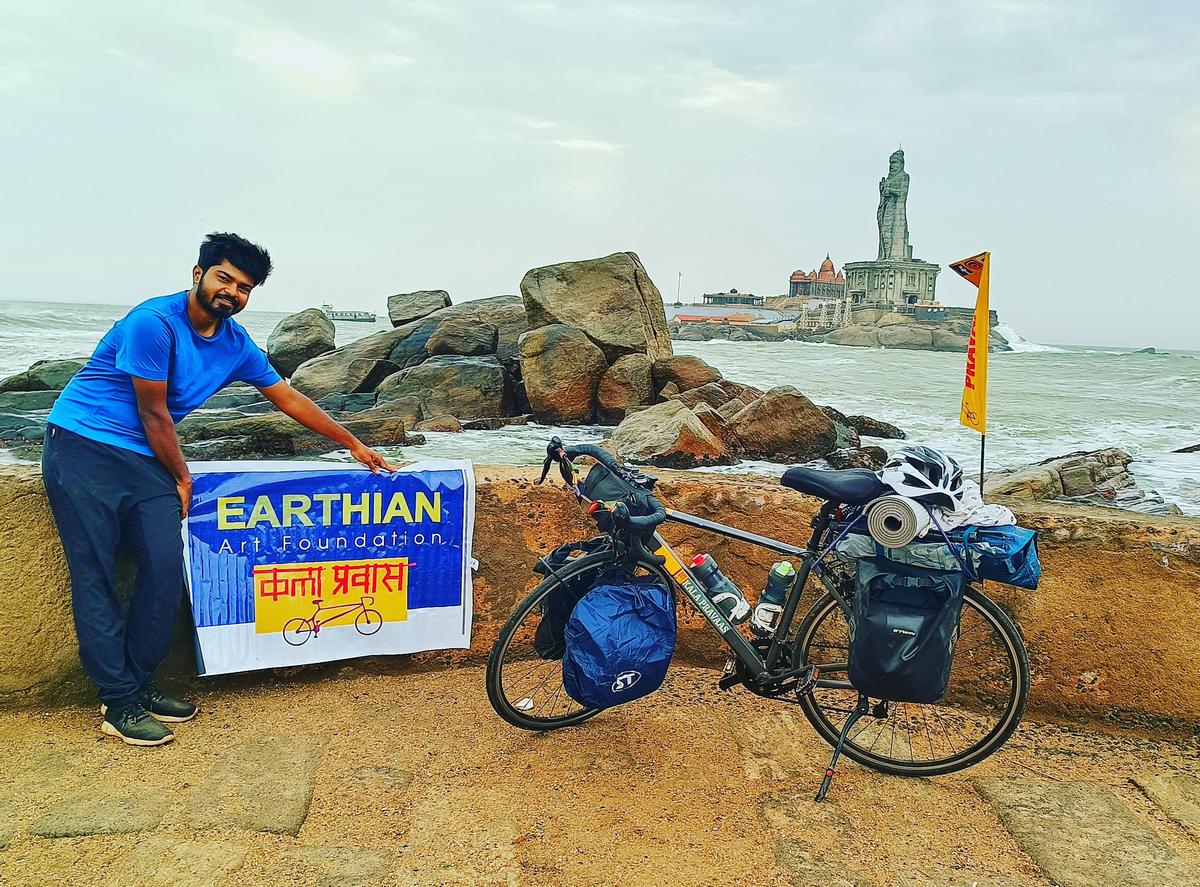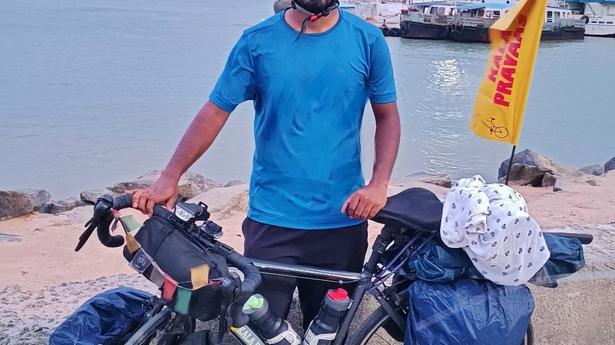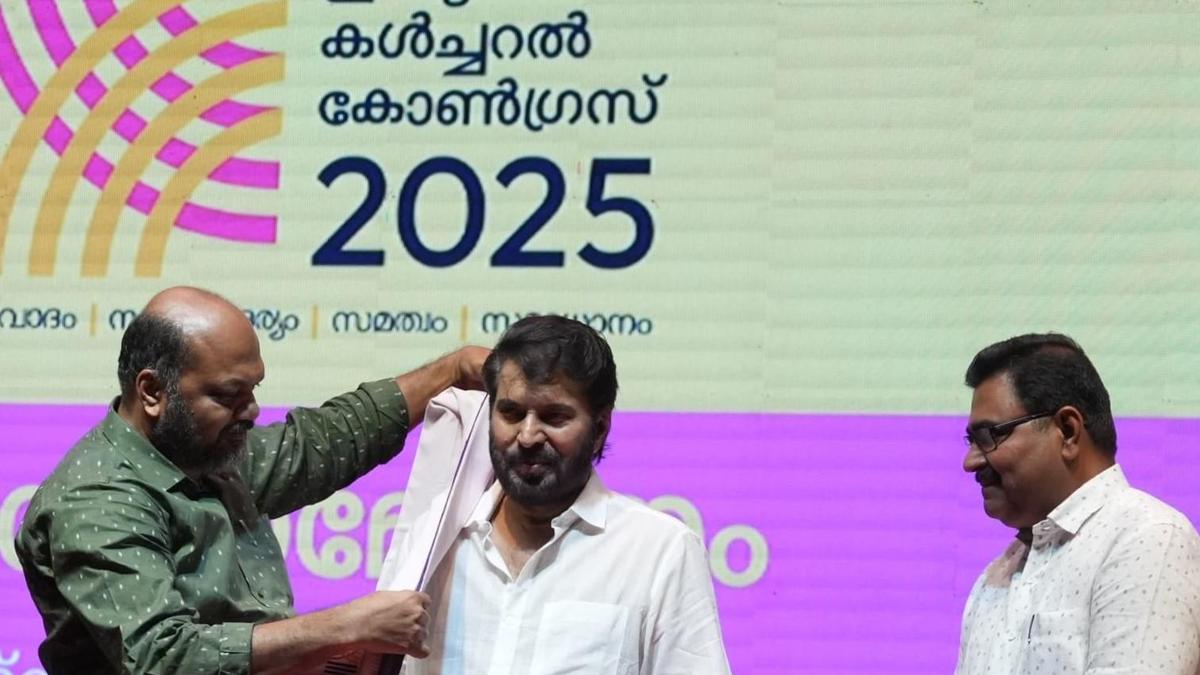On the way, Pratik Jadhav is tackling challenging routes to visit remote craft clusters and document their art and craft traditions
On the way, Pratik Jadhav is tackling challenging routes to visit remote craft clusters and document their art and craft traditions
Hidden amidst the pristine hinterlands of India is a treasure trove of folk art and culture that has been handed down through generations. These are often living chapters of undocumented history of Indian art forms. Today, several of these are fading.
A 26-year-old Mumbai-based artist is on a mission to document many of these traditional art forms through his solo bicycle journey called Kala Pravaas. Pratik Jadhav set off from Mumbai in August 2019 to travel the length and breadth of India, visiting art and craft clusters. In 2020, the pandemic halted his journey. This year in March, he resumed his travel with renewed vigour. Pratik has so far covered 18 States across North and South India and is now on the next leg of his mission travelling through the South Eastern coast.
Mumbai-based artist Pratik Jadhav who is on a cycling journey across India to document Indian art forms
| Photo Credit: SPECIAL ARRANGEMENT
“In our educational institutions, we learn extensively about the history of western art, but very little is included about the history of traditional Indian folk art and craft.” says Pratik, who graduated in Fine Arts from Sir JJ School of Art in Mumbai with a specialisation in Sculpture. “I wanted to document the richness of Indian art forms hidden within forests and behind mountains, which hardly find mention on the Internet or books,” he adds. Pratik intends to turn this research project into an audio-visual documentation and dedicate a museum on it. He, along with four of his friends, started the Earthian Art Foundation in 2019 with an aim to establish an art village and museum in Palu village in Thane district, Maharashtra. “My idea is to showcase the history of the art forms in the museum there,” he says.

Mumbai-based artist Pratik Jadhav who is on a cycling journey across India to document Indian art forms
| Photo Credit: SPECIAL ARRANGEMENT
It was his conscious choice to choose a bicycle as a medium of transport. “It is not just economical, but lets me travel at an unhurried pace, and feel connected with the world. It gives me better access to remote craft clusters that do not have proper roads,” says Pratik.
Through his journey, Pratik has stayed with locals, eating simple traditional food and witnessing art forms silently thriving in across India. From spending nights at modest cottages and lavish hillside bungalows, to meeting Aghori sadhus and hermits, Pratik shares that every experience brought him closer to the roots of Indian art and culture. “Many times, we do not understand each other’s language. But with visual art, it doesn’t need words to express feelings,” he says

Mumbai-based artist Pratik Jadhav who is on a cycling journey across India to document Indian art forms
| Photo Credit: SPECIAL ARRANGEMENT
He especially cherishes the time he spent with tribal communities in an interior village near Nanpur in Madhya Pradesh. “I reached the remote area after passing through challenging hilly terrain. There was no electricity, I had dinner in the dim light of a kerosene lamp with a tribal family that was happy to host me. We slept under the stars. I couldn’t see anything in the dark night. But as the sun rose the next morning, I was stunned to see the beauty around me. It didn’t feel like a cottage. I felt as though I was standing in the gallery of an art museum! There was a big, spacious wall in front of me with paintings that was like the life-story of the people. It had animals, birds, insects, trees, and erotic figures, farming, wine-making, and hunting. There were even two-headed horses! The tribals sung songs in front of it, as though they were worshipping art. I came to know that the art was called Pithora,” recalls Pratik.
From Assam’s manuscript painting, terracotta horses of Tamil Nadu and Kalamkari in Srikalahasti to Masan art of North Bengal, bronze casting works of Kumbakonam and Chittara painting from Karnataka, Pratik has been covered many art and craft clusters across the country. He is currently exploring the hinterlands of Andhra Pradesh, cycling towards Visakhapatnam from Vijayawada.






